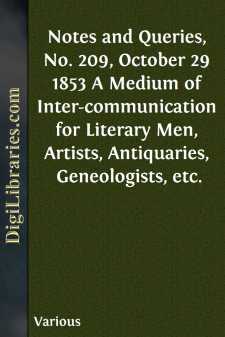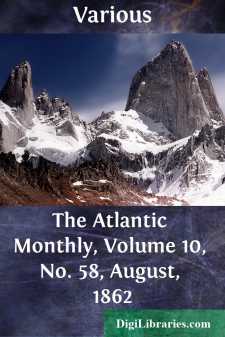Categories
- Antiques & Collectibles 13
- Architecture 36
- Art 48
- Bibles 22
- Biography & Autobiography 815
- Body, Mind & Spirit 144
- Business & Economics 28
- Children's Books 18
- Children's Fiction 14
- Computers 4
- Cooking 94
- Crafts & Hobbies 4
- Drama 346
- Education 58
- Family & Relationships 59
- Fiction 11829
- Games 19
- Gardening 17
- Health & Fitness 34
- History 1378
- House & Home 1
- Humor 147
- Juvenile Fiction 1873
- Juvenile Nonfiction 202
- Language Arts & Disciplines 89
- Law 16
- Literary Collections 686
- Literary Criticism 179
- Mathematics 13
- Medical 41
- Music 40
- Nature 179
- Non-Classifiable 1768
- Performing Arts 7
- Periodicals 1453
- Philosophy 65
- Photography 2
- Poetry 896
- Political Science 203
- Psychology 44
- Reference 154
- Religion 515
- Science 126
- Self-Help 85
- Social Science 82
- Sports & Recreation 34
- Study Aids 3
- Technology & Engineering 59
- Transportation 23
- Travel 463
- True Crime 29
Our website is made possible by displaying online advertisements to our visitors.
Please consider supporting us by disabling your ad blocker.
Notes and Queries, No. 209, October 29 1853 A Medium of Inter-communication for Literary Men, Artists, Antiquaries, Geneologists, etc.
by: Various
Categories:
Description:
Excerpt
THE SCOTTISH NATIONAL RECORDS.
The two principal causes of the loss of these records are, the abstraction of them by Edward I. in 1292, and the destruction of a great many others by the reformers in their religious zeal. It so happens that up to the time of King Robert Bruce, the history is not much to be depended on. A great many valuable papers connected with the ancient ecclesiastical state of Scotland were carried off to the Continent by the members of the ancient hierarchy, who retired there after the Reformation. Many have, no doubt, been destroyed by time, and in the destruction of their depositories by revolutions and otherwise. That a great many are yet in existence abroad, as well as at home, which would throw great light on Scottish history, and which have not yet been discovered, there is no doubt, notwithstanding the unceremonious manner in which many of them were treated. At the time when the literati were engaged in investigating the authenticity of Ossian's Poems (to go no farther back), it was stated that there was in the library of the Scotch College at Douay a Gaelic MS. of several of the poems of great antiquity, and which, if produced, would have set the question at rest. On farther inquiry, however, it was stated that it had been torn up, along with others, and used by the students for the purpose of kindling the fires. It is gratifying to the antiquary that discoveries are from time to time being made, of great importance: it was announced lately that there had been discovered at the Treasury a series of papers relating to the rebellion of 1715-16, consisting chiefly of informations of persons said to have taken part in the rising; and an important mass of papers relative to the rebellion of 1745-46. There has also been discovered at the Chapter House at Westminster, the correspondence between Edward I., Edward II., and their lieutenants in Scotland, Aymer de Valance, Earl of Pembroke, John, Earl of Warren, and Hugh Cressingham. The letters patent have also been found, by which, in 1304, William Lamberton, Bishop of St. Andrew's, testified his having come into the peace of the king of England, and bound himself to answer for the temporalities of his bishopric to the English king. Stray discoveries are now and then made in the charter-rooms of royal burghs, as sometime ago there was found in the Town-house of Aberdeen a charter and several confirmations by King Robert Bruce. The ecclesiastical records of Scotland also suffered in our own day; the original charters of the assembly from 1560 to 1616 were presented to the library of Sion College, London Wall, London, in 1737, by the Honorable Archibald Campbell (who had been chosen by the Presbyters as Bishop of Aberdeen in 1721), under such conditions as might effectually prevent them again becoming the property of the Kirk of Scotland. Their production having been requested by a committee of the House of Commons, the records were produced and laid on the table of the committee-room on the 5th of May, 1834....












